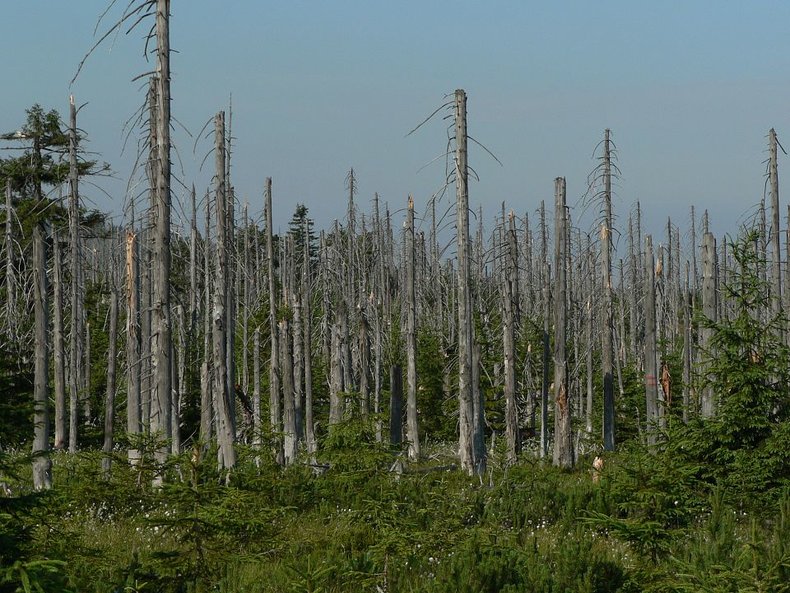
| Overview: Forest Dieback | ||
Type | ||
Definition | A large scale loss of trees often with unknown causes. | |
Risk | Triggering a vicious cycle related to the environment such as climate change that causes diebacks that cause more climate change. | |
Related Concepts | ||
What is a Forest Dieback? John Spacey, updated on

SustainabilityThis is the complete list of articles we have written about sustainability.If you enjoyed this page, please consider bookmarking Simplicable.
Environmental IssuesA few examples of environmental issues.
Greenwashing
An overview of greenwashing.
Global WarmingA definition and brief overview of global warming.Environmental Justice
The definition of environmental justice with examples.
CO2 Per Capita
A list of countries ranked by CO2 emissions per capita.
Co2 EmissionsNations ranked by total CO2 emissionsSocial IssuesA list of major social issues.Local IssuesA list of common local issues.
Community ProblemsA list of common community problems.Environmental Problems
A list of common environmental problems.
Existential RiskAn overview of existential risk.Precautionary PrincipleAn overview of the precautionary principle.
Comparative Risk
A definition of comparative risk with examples.
Energy EfficiencyThe common types of energy efficiency.
External StakeholdersThe definition of external stakeholder with examples.Economic Bad
Common examples of an economic bad.
Win-Lose
The definition of win-lose with examples.
Climate Engineering
An overview of climate engineering.
Soil Carbon
Why carbon soil is important.
TrendingThe most popular articles on Simplicable in the past day.New ArticlesRecent posts or updates on Simplicable. Site Map
© 2010-2023 Simplicable. All Rights Reserved. Reproduction of materials found on this site, in any form, without explicit permission is prohibited. View credits & copyrights or citation information for this page. |
|||||||||||||||||||||||||||